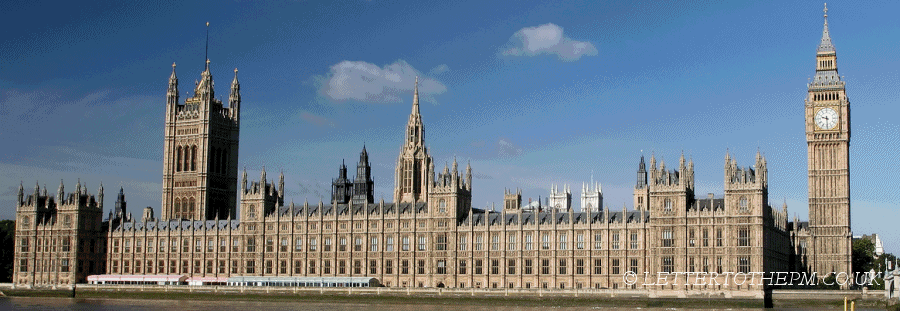
The Prime Minister
10 Downing Street
London
SW1A 2AA
100 Any Road
Typical Town
County
England
Date: 19th October 2008
Dear Prime Minister
The Scientific Assessment of School Performance: SATs and Exams
Like other parents and grandparents, I am concerned that if the Government removes the Standard Assessment Test (SAT) from schools, then parents – who, after all, pay for their children’s education – will no longer have an objective means of determining if their local school is performing its duties properly.
Children will meet the external examination system in the form of the GCSE and other exams in Year 11 anyway – but by then it may be too late to make up for lost time.
Many schools do object to the need for SATs. They feel that such tests are a slight on their ability to provide an excellent education. Unfortunately, these schools are often selective in their intake or benefit from being located in a well-off catchment area. However, there are a large number of other schools which need help and the closer monitoring of their performance than the infrequent OFSTED inspections. Some of these less successful schools would similarly prefer that the SATs be scrapped. But for different reasons. These schools feel that they cannot really improve and the curriculum makes it harder to perform even satisfactorily. There are local schools to where I live that have had a similar observation about their unsatisfactory arrangements for assessments made by OFSTED over two visits. How many years do these schools have to improve?
Even well established examinations like the GCSE have problems assessing the candidates, so it is no wonder that if assessment is reduced to an internal audit then the results will be suspect if not worthless.
The Government is rightly concerned that there is a lack of scientists in Britain. So why are they preparing to scrap the SATs? The Standard Assessment Test does provide the scientific data to enable pupils’ progress and the performance of the school to be monitored throughout the child’s long years in education. Surely, it’s not just because of the fiasco this year with marking the tests?
As a former moderator for London University and a teacher who has spent several years in almost fifty schools as a supply teacher, I can assure you, that being examined and tested regularly is welcomed by nearly all pupils. Maths, science and foreign language teachers often carry out tests.
"He's a real teacher, he tests us and cares for our progress" is a typical response to an enquiry about the ability of a teacher. If pupils are stressed it is more likely to occur when testing and exams are not employed. Testing is used to find out whether the pupils are making progress on a regular basis. If there is little testing then pupils may be stressed as exams then become an unfamiliar experience. Parents worry anyway, but removal of the exams may resolve their worries for the short term, only to be replaced by disappointment when their child does not fulfil its capability in the GCSE or other examination.
If the Government is proposing to replace the KS3 SATs with a more accurate way of assessing children's progress then it needs to make sure that the replacement assessment arrangements are at least equal to or better than the present system. After all, the present system has produced better GCSE and A level results.
Yours Sincerely
A. Citizen
A reply to the above letter is published below

department for children, schools and families
Castle View House East Lane Runcorn Cheshire WA7 2GJ
Tel: 0870 000 2288
Our ref: 2008/0092192 25 November 2008
Dear Sir
Thank you for your recent letter, addressed to Gordon Brown, about the abolition of National Curriculum (NC) tests, sometimes known as SATs. It has been forwarded to the Department for Children, Schools and Families for reply as we are responsible for school issues. I have been asked to reply on this occasion.
I should explain that the NC tests for 7 year olds in Key Stage 1, which are administered as teacher assessments, and the Key Stage 2 tests for 11 year olds have not been withdrawn.
The Secretary of State has only announced that we have ended schools' requirement to run national tests for 14 year olds, with immediate effect. The current compulsory national tests at the end of Key Stage 3 will be replaced by improved classroom assessment by teachers and frequent reporting to parents in years 7, 8 and 9. There will be a stronger focus on one-to-one tuition and catch-up support for children in the first years of secondary school. This will be more flexible for schools, more personalised for individual pupils, and provide more scope for teacher assessment and professional judgement.
He also announced that we plan to introduce new School Report Cards, as part of wider changes to strengthen schools' accountability to parents and the public, raise school standards, and reform pupil testing and assessment. We will set out detailed proposals on report cards for consultation with schools, parents and the public by the end of this year, leading to a White Paper in spring 2009.
Thank you for writing in with your views.
Yours sincerely
Julie Sealey
Public Communications Unit
A reply has been written directly to the Prime Minister and is published as a new letter Scientific assessment of schools SATs (19th July 2009 letter)